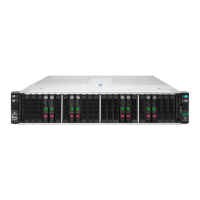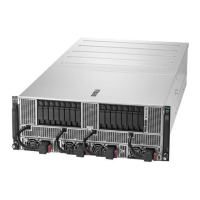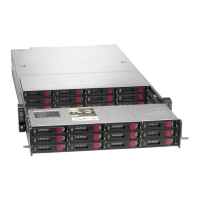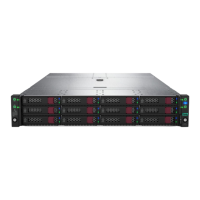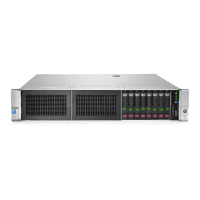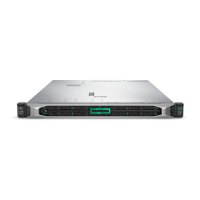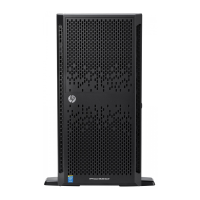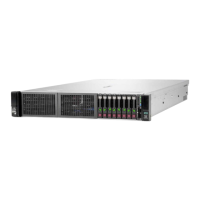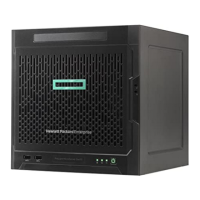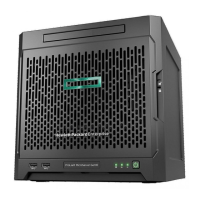Software and configuration utilities 158
• USB 3.0 capable devices operate at USB 2.0 speeds when installed in a USB 2.0 port.
• When the node is configured for UEFI Boot Mode, Hewlett Packard Enterprise provides legacy USB
support in the pre-boot environment prior to the operating system loading for USB 1.0, USB 2.0, and
USB 3.0 speeds.
• When the node is configured for Legacy BIOS Boot Mode, Hewlett Packard Enterprise provides
legacy USB support in the pre-boot environment prior to the operating system loading for USB 1.0
and USB 2.0 speeds. While USB 3.0 ports can be used with all devices in Legacy BIOS Boot Mode,
they are not available at USB 3.0 speeds in the pre-boot environment. Standard USB support (USB
support from within the operating system) is provided by the OS through the appropriate USB device
drivers. Support for USB 3.0 varies by operating system.
For maximum compatibility of USB 3.0 devices with all operating systems, Hewlett Packard Enterprise
provides a configuration setting for USB 3.0 Mode. Auto is the default setting. This setting impacts USB
3.0 devices when connected to USB 3.0 ports in the following manner:
• Auto (default)—If configured in Auto Mode, USB 3.0 capable devices operate at USB 2.0 speeds in
the pre-boot environment and during boot. When a USB 3.0 capable OS USB driver loads, USB 3.0
devices transition to USB 3.0 speeds. This mode provides compatibility with operating systems that
do not support USB 3.0 while still allowing USB 3.0 devices to operate at USB 3.0 speeds with
state-of-the art operating systems.
• Enabled—If Enabled, USB 3.0 capable devices operate at USB 3.0 speeds at all times (including
the pre-boot environment) when in UEFI Boot Mode. This mode should not be used with operating
systems that do not support USB 3.0. If operating in Legacy Boot BIOS Mode, the USB 3.0 ports
cannot function in the pre-boot environment and are not bootable.
• Disabled—If configured for Disabled, USB 3.0 capable devices function at USB 2.0 speeds at all
times.
The pre-OS behavior of the USB ports is configurable in the UEFI System Utilities, so that the user can
change the default operation of the USB ports. For more information, see the HPE UEFI System Utilities
User Guide for HPE ProLiant Gen9 Servers on the Hewlett Packard Enterprise website
(http://www.hpe.com/info/uefi/docs).
External USB functionality
Hewlett Packard Enterprise provides external USB support to enable local connection of USB devices for
node administration, configuration, and diagnostic procedures.
For additional security, external USB functionality can be disabled through USB options in UEFI System
Utilities.
Redundant ROM support
The node enables you to upgrade or configure the ROM safely with redundant ROM support. The node
has a single ROM that acts as two separate ROM images. In the standard implementation, one side of the
ROM contains the current ROM program version, while the other side of the ROM contains a backup
version.
NOTE: The server ships with the same version programmed on each side of the ROM.
Safety and security benefits
When you flash the system ROM, ROMPaq writes over the backup ROM and saves the current ROM as
a backup, enabling you to switch easily to the alternate ROM version if the new ROM becomes corrupted
for any reason. This feature protects the existing ROM version, even if you experience a power failure
while flashing the ROM.

